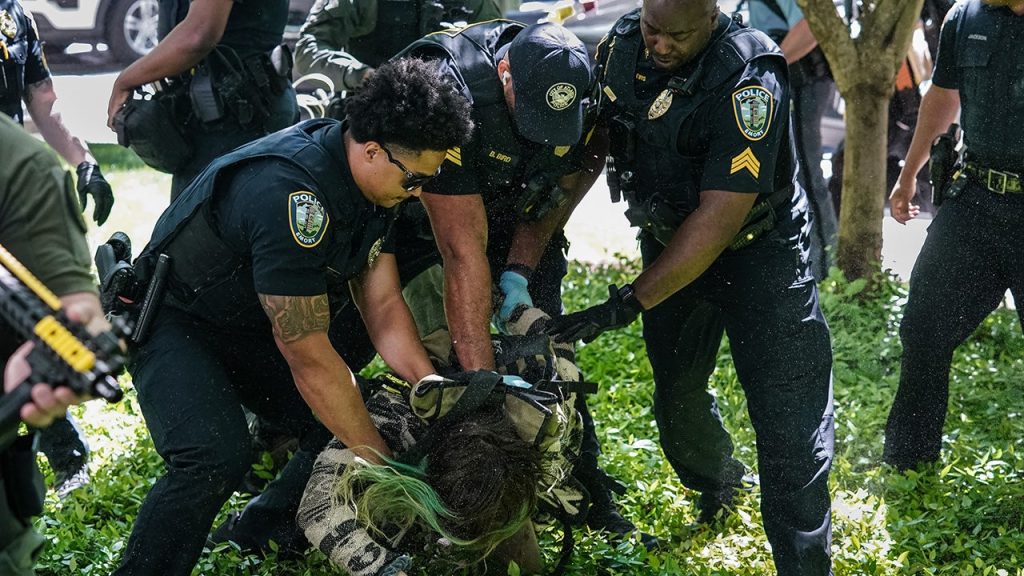Emory University condemned protesters who trespassed onto campus and disrupted activities on Thursday. The group of several dozen activists set up tents on the quad, holding signs calling for an end to ties with Israel. Despite the university’s attempts to disperse the crowd, tensions escalated with law enforcement using various methods such as tear gas, tasers, and rubber bullets. The protesters were a mix of anti-Israel demonstrators and supporters of the “Stop Cop City” movement, which aims to prevent the construction of a new training facility for police and first responders in Atlanta. The protest eventually ended with a brief march by the remaining group.
An opinion piece published on the pro-Palestinian blog Mondoweiss explained the protesters’ demands for divestment from Israel and opposition to the construction of the training facility known as “Cop City.” Emory College of Arts and Sciences lists one of the authors, Jadelynn Zhang, as a graduate student in the Department of Sociology. The roots of “Cop City” were described as being linked to the Israeli Urban Warfare Training Center, funded by the U.S., with similarities in tactics used against marginalized communities in Palestine and specific communities in Atlanta. Similar disruptions have occurred at other universities, including USC, Harvard, and Columbia, as well as in downtown Atlanta with individuals climbing construction cranes to hang protesting banners.
Last year, Atlanta police arrested over two dozen individuals associated with the “Cop City” demonstrations on domestic terrorism charges. The Georgia attorney general warned that authorities would not tolerate the disruption of construction by violent extremists from various areas. In March, two protesters climbed a construction crane in downtown Atlanta to display a banner reading “Drop Cop City,” resulting in trespassing charges against them. Emory Police Department, as well as the Atlanta Police Department and Georgia State Patrol, provided support during the demonstrations, although specific details of arrests and detentions were not immediately available.
The protesters’ actions were met with condemnation from Emory University, which emphasized that they were not part of the university community and were attempting to disrupt activities as students prepared for finals. The university urged peaceful and respectful expressions of opinions while denouncing vandalism and criminal activities. While the protests ultimately ended and the remaining group marched briefly, the disruption caused tensions on campus with law enforcement resorting to various means to disperse the crowd. The ongoing efforts to halt the construction of “Cop City” and demand divestment from Israel are part of a larger movement against perceived injustices and marginalization of communities.
The Emory University protests reflected a wider trend of disruptions and demonstrations happening at various institutions across the country, in support of divestment from Israel and opposition to the construction of the training facility known as “Cop City.” The use of tactics such as occupying university campuses and climbing construction cranes to display protest banners demonstrate the intensity and commitment of the activists involved in these movements. Emory’s response highlights the challenges faced by universities in managing such protests while ensuring the safety and security of their students, faculty, and staff. The tensions between protesters, law enforcement, and university officials underscore the complex dynamics at play in addressing contentious issues and balancing the rights to free speech and peaceful protest with the need for order and security on campus.


